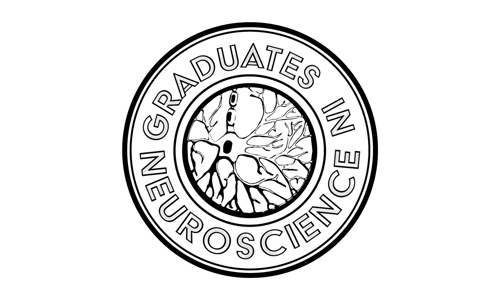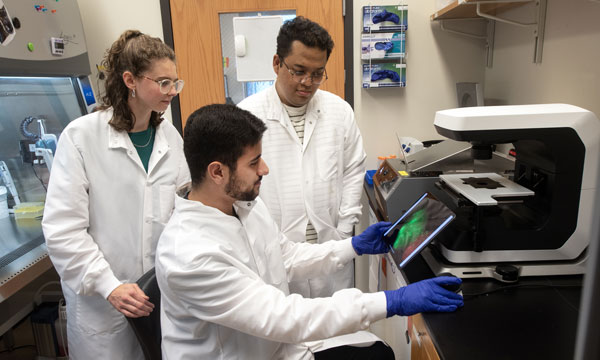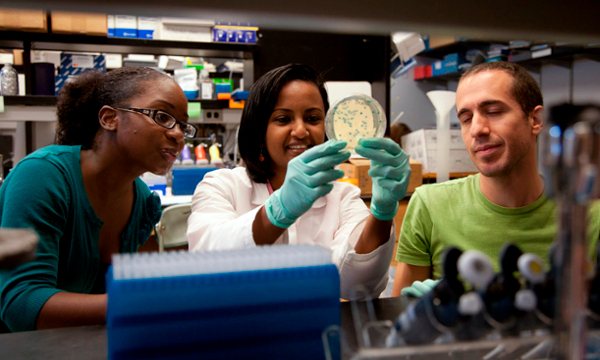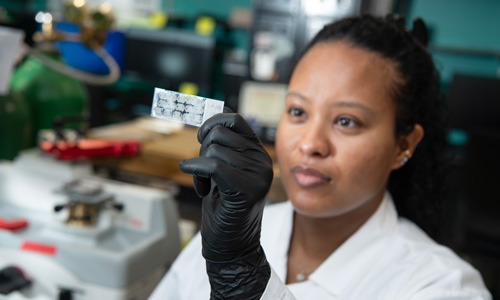Andrew P. Escayg, PhD
 |
Professor, Department of Human Genetics, School of Medicine
Graduate Programs
- Full Member - Genetics and Molecular Biology
- Full Member - Neuroscience
Education
PhD, Lincoln University, 1995MPhil, The University of the West Indies, 1990
Contact Information
Email: aescayg@emory.edu
Phone: 404-712-8328
Address:
Whitehead Biomedical Research Building, Room 361
615 Michael Street
Atlanta, GA 30322
1941-001-1AE
The long-term goal of our research is to develop better diagnostic tools and more effective therapeutic agents. Of particular interest to us is the role of voltage-gated ion channels in disease. Voltage-gated ion channels play a critical role in neuronal signaling and the maintenance of normal nervous system function. Diseases that result from mutations in ion channel genes are called channelopathies. Channelopathies underlie a wide range of disorders that include cardiac and skeletal muscle defects and neurological disorders such as epilepsy.
Our research can be divided into a number of different components.
Human disease gene identification and analysis:
One component of our research is the identification of genes responsible for inherited human neurological disorders such as epilepsy. If we suspect that a known gene is mutated in the family then the candidate gene is directly screened for novel mutations. If we suspect that a novel gene may be responsible, then we use a variety of genetic techniques in order to identify the novel disease gene. We are also working with the Emory Genetics Lab in order to analyze sequence data from epilepsy patients that are referred for genetic testing. Using these approaches we are identifying many novel disease mutations as well as new disease genes. Follow up analyses on these findings is providing the opportunity for new research projects. Genes that we are currently working on include: SCN1A, SCN8A, ATP6V0C, BAI1, BCL11A.
Mouse genetics:
Understanding the mechanisms that lead to disease is an important step towards the development of improved therapies. In order to understand how specific mutations cause disease, mice carrying specific human mutations can be generated. We are using this approach to generate mouse models that carry identified human epilepsy mutations. These mice reproduce many features of the human disease and are currently under investigation for seizure phenotypes and neuropsychiatric abnormalities.
Development of novel treatments for epilepsy
Approximately 30% of patients with epilepsy do not achieve effective seizure control with available anti-epilepsy medications. In addition, many patients with epilepsy experience neuropsychiatric co-morbidites such as anxiety, depression and altered sleep architecture, which can have a profound impact on quality of life. We are actively involved in evaluating the efficacy of alternative treatments and novel pharmaceutical compounds. We are also exploring the use of nanoparticles for the delivery of neuropeptides to the brain. We are also studying the role of brain derived extracellular vesicles (BDEVs) in epilepsy.
Control of seizure and migraine susceptibility
Funding Agency: NIh/NINDS
Project Dates: 07/01/2021 to 06/30/2026
Exploring the role of oxytocin in the regulation of neuronal excitability
Funding Agency: NIH/NINDS
Project Dates: 05/01/2021 to 03/31/2026

Katie James (she/her)
Neuroscience
Entrance Year: 2023
Topic: Behavioral Impairment in Neurodegenerative Disease

Samantha Reed
Neuroscience
Entrance Year: 2018
Topic: Alterations in Brain-Derived Extracellular Vesicles in Treatment-Resistant Epilepsy
Thomas Shiu
Neuroscience
PhD, 2023
"The ADGRB1 receptor (BAI1): A key player in phagocytosis, brain development, and neurological disease"
Kari Mattison
Genetics and Molecular Biology
PhD, 2022
"Towards a better understanding of genetic contributions to epilepsy"
Lindsey Shapiro
Neuroscience
PhD, 2021
"Evaluating the Therapeutic Potential of the Cannabinoid 2 Receptor in Epilepsy"
George Inglis
Genetics and Molecular Biology
PhD, 2020
"Roles of the SCN1A and SCN8A Voltage-Gated Sodium Channel Genes in Neurological Disease"
Kameryn Butler
Genetics and Molecular Biology
PhD, 2018
"Identification and Evaluation of Novel Epilepsy-Associated Variants"
Tyra Lamar
Neuroscience
PhD, 2017
"Voltage-gated Sodium Channels as Modifiers of Scn1a-derived Epilepsy"
Nikki Sawyer
Neuroscience
PhD, 2014
"The role of stress in two genetic models of epilepsy"
Christopher Makinson
Neuroscience
PhD, 2013
"Role of voltage gated sodium channels in epilepsy"
Stacey Dutton
Neuroscience
PhD, 2012
"The Voltage-gated Sodium Channel SCN1A and Epilepsy"
Melinda Martin
Genetics and Molecular Biology
PhD, 2007
"Voltage-gated sodium channel dysfunction and epilepsy"








